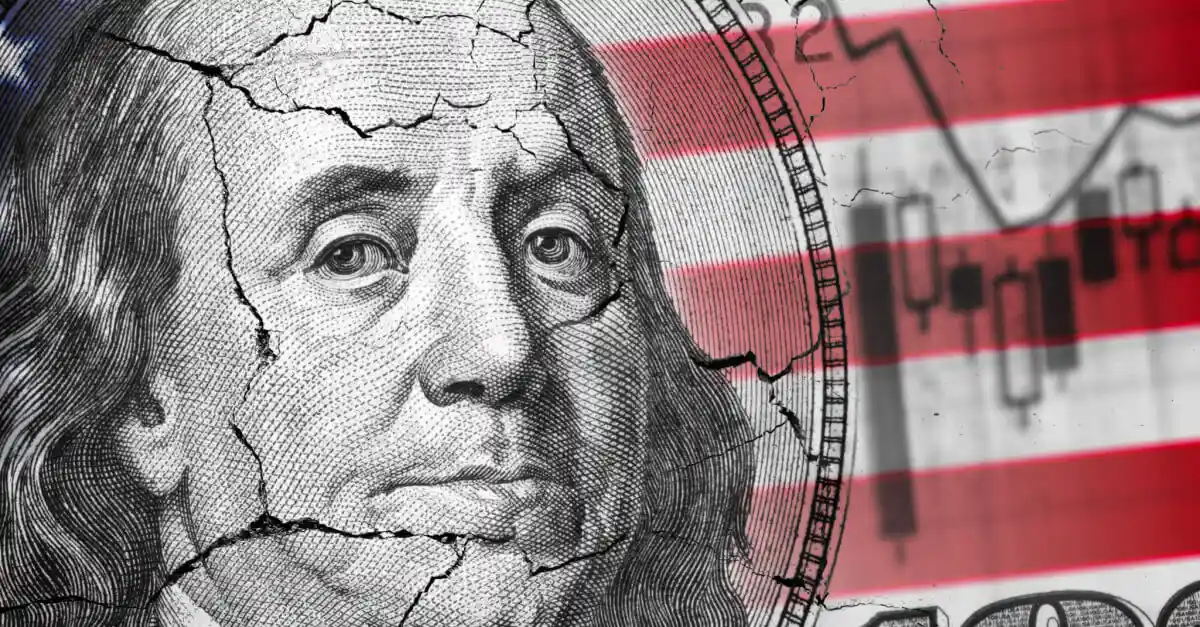
Deutsche Bank’s Warning on U.S. Economic Policies
Deutsche Bank has recently raised concerns over the U.S. government’s new tariff policies, warning of potential long-term effects on the strength of the U.S. dollar. In its latest report, the bank critically analyzed the implementation of these tariffs and highlighted key risks to the currency’s value, with a focus on the global economic implications.
Tariffs and Policy Uncertainty: A Growing Concern
Deutsche Bank’s analysis points to a widening gap between recent promises to reassess trade relationships and the actual outcomes of these new tariffs. The bank argues that this disconnect could harm the credibility of U.S. policymakers and erode market confidence in the government’s economic strategy.
As the report notes, these tariffs represent the most significant shift in U.S. trade policy in over a century. The lack of clarity and a cohesive approach to trade negotiations is creating uncertainty, particularly with countries that were previously enjoying favorable trade terms. Now, these nations face severe trade barriers with little room for negotiation, potentially fueling global trade tensions.
The Bearish Dollar Outlook: What’s Driving It?
Deutsche Bank has maintained a bearish stance on the U.S. dollar, emphasizing that the dollar’s future will largely depend on the U.S. economic growth and fiscal policies relative to other regions. According to the bank’s analysts, this disparity will be a major factor in the dollar’s trajectory in the coming months.
One of the most significant threats to this bearish outlook comes from fluctuations in the USDCNY exchange rate, with the Chinese yuan potentially having a major impact on the dollar’s performance. However, Deutsche Bank stresses that the focus should remain on global economic trends and how markets react to these shifts.
Read More: Deutsche Bank Warns of a Potential Trust Crisis in the U.S. Dollar
What’s Next for the Dollar? The Role of China and Europe
Deutsche Bank predicts that the actions of China and Europe in response to the new tariffs will be pivotal in determining the future of the U.S. dollar. If these regions retaliate with countermeasures or defensive policies, the pressure on the dollar could increase, further challenging its dominance in global markets.
Recent economic reports show that the U.S. dollar is already under significant pressure. With the potential for heightened global tensions and retaliatory policies, investors are closely monitoring how these events will unfold in the weeks ahead.
Why It Matters: The Global Impact of U.S. Economic Policies
The U.S. dollar is the world’s primary reserve currency, and as such, it’s highly sensitive to the country’s trade policies and economic decisions. The current shift in tariff policies has not only disrupted trade relations but has also raised concerns about the stability of the U.S. economy in the eyes of global investors.
This uncertainty could lead to increased volatility in currency markets, with broader implications for international trade and financial markets. For traders and investors, staying informed on these developments is crucial to navigating potential market fluctuations in the near future.
As the situation evolves, it will be essential to keep a close eye on the U.S. government’s next moves and how global markets react. Only time will tell whether these tariffs will have a lasting impact on the dollar or whether the U.S. can adjust its policies to stabilize the currency’s value.
Share
Hot topics

Best broker for gold trading
There’s always been a certain magic about gold. Before online charts and trading applications, people stored their wealth in coins and bars, trusting that gold would retain its value during...
Read more




Submit comment
Your email address will not be published. Required fields are marked *